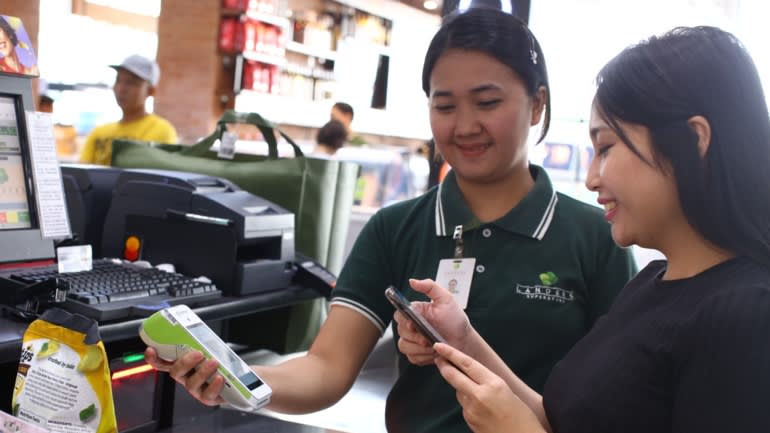
In the bustling streets of Manila, a new banking sensation is sweeping through – Tonik Digital Bank. With a charming greeting, “Your traditional banking ends here. Your neobanking romance starts now,” Tonik is not just a bank; it’s a love affair with finance. Goodbye old bank, hello higher interest rates and a pet name – “luv.”
Since its grand entrance in March, Tonik has captured over 100,000 hearts (and accounts). In its debut month alone, it raked in an impressive one billion pesos (about $20 million) in retail deposits, a figure that has since ballooned to over 4.4 billion pesos.
Backed by Sequoia India, this startup is one of six digital banking knights in shining armor, aiming to sweep off their feet the 70% of Filipino adults without bank accounts. This figure is strikingly high for Southeast Asia.
In a move by the central bank a year ago, digital banks were given the green light to offer traditional banking products, but with a twist – there’s a cap of six licenses for three years. These modern, branchless banks are paving the way in a market ripe for fintech innovation, especially with the pandemic nudge.
These new players, with their lightweight business models, are expected to bring flexible, better offerings to millions of Filipinos who are currently outside the financial fold. Analysts are betting on digital banks to eventually outshine traditional banks, though they also note the challenge posed by the established, branch-loving lenders.
Greg Krasnov, the founder and CEO of Tonik, is riding high on optimism. Speaking of potential values of up to $140 billion in retail deposits and $100 billion in lending, Krasnov sees a vast, untapped market, poorly served by traditional banks, especially in lending.
The Philippines, a fast-growing economy pre-pandemic, houses 109 million people. A staggering 99% of its businesses are micro, small, and midsize enterprises, and the country benefits greatly from $30 billion in annual remittances from 10 million overseas workers. But, the high cost of setting up physical branches and stringent banking protocols have been barriers to financial inclusion.
Enter digital banks like Tonik, with their quick loan approvals, branchless operations, and agility in crafting new offerings. As Patrick Stokvis from Third Bridge points out, these attributes position digital banks to exploit the gaps left by their bigger counterparts.
Another player, Paymaya, backed by KKR, is launching Maya Bank targeting small transactions. With 40 million registered users and a vast network of remittance agents, Paymaya is poised to make a significant impact.
Data-driven tailoring of services is another strength of digital banks. Paymaya CEO Orlando Vea emphasizes this point, noting their deep understanding of customers’ financial behaviors and needs.
The digital banking space in the Philippines also features others like Overseas Filipino Bank, GOtyme, and UNObank, each with their own unique strategies for regional expansion.
Analysts like Swarup Gupta from the Economist Intelligence Unit see digital banks eventually becoming the primary choice for customers. However, the challenge remains: the five largest domestic banks hold 60% of all loans and assets, a solid incumbent advantage.
But traditional banks aren’t resting on their laurels. Union Bank of the Philippines, among the top 10, is launching its own digital bank. Rizal Commercial Banking Corporation (RCBC), though missing the first licensing round, is also on the digital path, bolstered by a hefty investment from Sumitomo Mitsui Banking Corp.

And then there’s BDO Unibank, the largest lender, stepping into the mobile wallet arena, a domain already bustling with players like Paymaya and GCash.
Tonik, having raised $44 million, is gearing up for another round of fundraising to beef up its financial prowess against these giants.
But the real battle, analysts say, is for trust. In a country where face-to-face transactions are preferred, digital banks need to work hard to win and keep customer trust. It’s not just about technology; it’s about building relationships in this neobanking romance.
